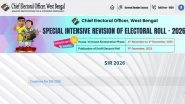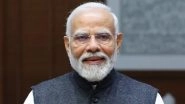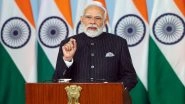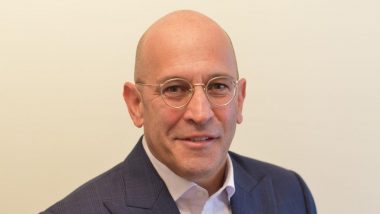In the digital age with ever evolving technology and ideas surrounding currency, investing and wealth accumulation, a high degree of financial literacy has become arguably one of the most important skills necessary to live comfortably and retire successfully.
Today we’re here with Andrew Lavenziano who is helping to bridge the gap in financial literacy through his upcoming documentary called The Baby Boomer Dilemma. According to Lavenziano there is a retirement crisis in America. This groundbreaking documentary, for the first time ever, explores the science of retiring successfully. Nobel Prize winning Economists, Professors with PhD’s and other high profile economic contributors delve into the truth about traditional retirement planning and what must change in order for Americans to enjoy a successful retirement.
Andrew, thank you for taking the time to sit down with us to give us a preview into the groundbreaking work you’re doing with this documentary. Let’s start with some background about you. Where did you start out in the world of finance and how did it bring you to this pivotal stage of producing this documentary?
Since the 90’s, my main focus has been in finance. I obtained an AS In Business, traversed Wall Street after acquiring The Series 7, 63, 24 and 65 licenses by trading domestic and overseas accounts. As a member of the MBA, (Mortgage Bankers Association) I joined Countrywide's Wholesale Mortgage Division as an Account Executive and Area Sales Manager in Sub-prime and Prime Divisions during and at the end of end of the housing bubble crisis when Bank of America bought Countrywide leaving most jobless. I then ventured back to Wall Street however, this time as a Registered Principal with an office on the same block as The New York Stock Exchange.
With the Baby Boomers coming on strong I saw a need to protect people's wealth. I started and became President of the Insurance Division within the firm. However, due to the lack of interest with this side of the industry by higher ups I decided to resign. I then joined Genworth and their Long Term Care Insurance Division. I was now genuinely protecting families from a possible health event that would truly devastate them financially. I wanted to offer more of these types of protective services for people’s wealth. So I advanced my night studies in Certified Financial Planning at Fairleigh Dickinson University. Genworth too had its fair share of woes and decided to terminate their National Sales force. It was at this particular time where I said to myself "that's it! No more corporate life for me”.
After completing The Financial Planning Certificate Program I shifted to an independent practice with an added focus on group benefits. I was also invited to become a Pension Trustee at the Union Local level and currently helping to manage a 100 plus million dollar fund with a team of prudent professionals.
As time went on I would realize the single greatest challenge that people were having, Planning for Retirement. My true passion became helping people solve the number one greatest financial problem they will ever face.
Having such a diverse background in finance, retirement planning and investing, can you share with us what you believe to be the most important components that will help to achieve a high level of financial literacy?
It starts with a good foundation of what one is trying to accomplish at any given moment in time, asking the right questions along the way and educating yourself enough to be able to ask those questions. Being open minded and understanding your options also plays a big role. I’ve had people say to me “wow! I didn’t even know that was something I could do” or, “no one’s ever shown that to me before”. Additionally, when starting your relationship with money you may want to have a 6 to 9 month cushion of monthly expenses in a liquid emergency account like a savings account and/or money market account. I know for some folks it feels like they’ll just never get ahead, I’ve been there myself and getting out of debt is never an easy task but it can be achieved. Relying on credit cards and loans living beyond one’s means is detrimental to ever getting ahead. Paying in full monthly and using those credit card companies to one’s advantage will pave the way to an added awareness of spending patterns and its effects on one’s standard of living. Furthermore, It may be a good idea to have an understanding of how to budget, it’s usually a good place to start when getting out of debt and getting ahead.
I do find it quite ironic though, how our government subconsciously teaches America that it’s okay to owe money and live on credit. Just look at our government debt of close to 30 trillion dollars. Do we really have to wonder why we as Americans feel as if it’s okay to live a lifestyle on credit as well?
Having the Understanding of how to achieve the highest possible credit scores so the cost of unnecessary higher interest rates doesn’t become the norm. Would you rather give your hard earned money to the banks or to yourself? Over a lifetime the excessive interest charges can easily equate to tens if not hundreds of thousands one could have saved and invested for their later years. Understanding interest and how it works especially on a compounding level is also very important. For example learning the rule of 72 where at 5%, money doubles every 14.4 years, (72 divided by 5% = 14.4 years). Simply divide the number 72 by an investment's expected annual return to determine roughly the number of years it will take to double that investment.
Thank you for this comprehensive description of financial literacy, Andrew. You’ve placed emphasis on understanding interest, credit scores and budget planning; what do you believe to be the main area that is lacking in terms of financial knowledge for Americans?
That’s a good question, I’m glad you asked that. I do believe there is a lack of basic understanding of simple financial terms and definitions. At no fault to them most people were never taught these things, it’s not part of our early education. How can one prepare for their retirement if they don’t know the difference between defined benefit plans and say a 401k or an IRA? How can one budget themselves unless they understand monthly fixed expenses vs. variable expenses. Not understanding how to achieve other guaranteed income in retirement and not preparing for the cost of healthcare. A possible health crises or cognitive event in their later years of life can also be detrimental to a successful retirement. A lot of times people don’t even know they have a problem financially nor are they aware it even exists.
I use the term “Prepared Awareness” and what I mean by that is having the awareness to prepare as early as possible for whatever it is you’re trying to accomplish, failing to plan is a plan to fail. Additionally, one may not know or have all the answers right away so seek help, it’s a must in order to succeed. Also, it may make sense to receive advice from specialists within specific goals. What I mean by that is would you go to your CPA to ask about a mortgage? For you DIY’s out there be aware of your research online and the bias information that you’ll find, remember statements without proof is just hype. Ask yourself, what kind of advice will you be getting from someone who’s never seen the very thing you need to succeed because it’s not their area of expertise?
Employed on Wall Street during the crash of 2008 right after working for Countrywide’s Wholesale Lending Division and experiencing first-hand the start of the crises before it even hit the stock market was a true eye opener. It was a dark time for many folks with no accountability, just a government bailout for the banks while a lot of people saw their savings cut in half forcing a shift in returning back to work. So I think what people are also lacking even now 13 years later is confidence in the system and rightly so. This in turn leads to a lack of confidence in our own financial achievements both before and during retirement. We’ve probably all heard paying yourself first out of your weekly pay is important but perhaps even more important is paying yourself last in your retirement years.
You’ve made it very clear that information is key when it comes to retirement planning and understanding that information is the first piece of the puzzle. Do you think this lack of knowledge is the reason for the gap in America’s financial awareness?
It may or may not be, every situation is different. In my honest opinion I believe many people are disappointed where they’re at financially and to accept the reality of not being further along may be quite frightening. So to change what one is doing causes uncertainty and fear. Doing nothing is in a way validating the choices one has made thus far and probably feels far more comfortable than doing something. I mean, let’s face it people tend to believe they're ok until they're not. Evident with the crash of 2008 as mentioned before where people were again forced to go back to work because their accounts were pulverized.
How do you think we as a society can help to lessen the blow of being ill-prepared for retirement? Should this documentary be shown in schools to instill the importance of planning at an early age?
This may not speak for all quite honestly but perhaps we as a society can help each other out a little more by making it okay to think outside the box and not follow the status quo all the time. Whether trading Stocks and Bonds, living off of dividends, Real Estate, CD’s, Mutual Funds, 401K’s & IRA’s, Crypto Currencies or any other vehicles , depending on one’s risk tolerance I believe there is a time and place for not all but most investments out there.
I do believe this documentary should be shown in schools, probably at the middle to high school level. The professors with PhD’s, Nobel Prize winning economists and quite a few other significant contributors to our economy show how it is in black and white. The fact of the matter is students are not taught anything about finances unless they choose to study it in college. The curriculums seem to be shortchanging the youth and if responsible enough will be corrected. I’ll never understand how the strongest nation in the world financially hasn’t jumped at this opportunity to better prepare the future of our economy and our up and coming students and professionals by educating earlier.
Thank you, Andrew, for taking the time to share your valuable insight on an important subject affecting millions of Americans today. In closing, tell us what we can expect to take away from this documentary.
There are some key points that will be covered. What Nobel Prize winning economists and PhD’s do for their retirement, 4 retirement strategies and which is best for you, A major hidden danger that could ruin retirement that almost no one considers, “Who Stole my Pension?” If you have a pension…can you count on it for life…or will it be cut like social security, why social security payments are likely to be cut 30%...and what to do about it. How to convert your nest egg into a cash flow that gives you maximum income for the rest of your life and a few others.
We all know nothing is perfect, especially in the world of investments and with this significant problem people are facing today. Things like outliving one’s income, not preparing for inflation, market loss and in some cases devastating losses. Not understanding how taxes will impact one's retirement and other variables that contribute to a possible unsuccessful run of retirement will forever be present. Addressing these types of obstacles one by one with a prepared awareness will better serve everyone in achieving a retirement lifestyle they have dreamed about their entire lives ensuring that your money, outlives you.













 Quickly
Quickly


